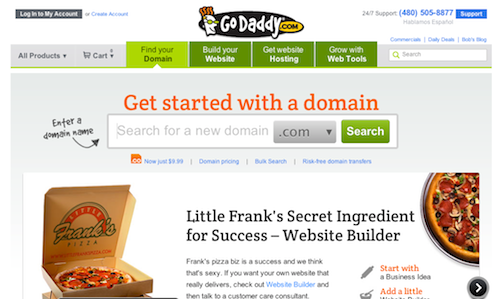Paul Nicks is responsible for Product Development as the Aftermarket Director at Go Daddy. Rich Merdinger is the Vice President of Product Development in the Domain channel at Go Daddy. These gentlemen were willing to share their 2013 predictions for the domain business.
You can read other 2013 predictions here and here.
gTLDs:
- gTLD adoption will move east to west, beginning with IDNs and GEOs; US buyers will be slow to invest, as generic English TLDs are not available until later in the roll-out process
- IDN.IDN domains see strong adoption
- Contention auctions captivate national media attention leading to broader understanding of gTLDs by the general public
- Initial confusion by the general public will dissipate quickly as people become accustomed to identifying web addresses by string[dot]string as opposed to the common string[dot]com
- Business owners will become frustrated with the need to defensively register and trademark-monitor new extensions as they slowly roll-out
- .NINJA sneaks up on everyone
Aftermarket:
- .COM, .NET, .ORG and .INFO see a bump in aftermarket pricing as the original gTLDs are seen as a safe harbor in the impending sea of new gTLD confusion
- PPC makes a comeback, with earnings rising for the first time in years
- Sunrise/Landrush auctions dominate the second half of the year leading to auction overload for TM holders and investors
- Domain conferences set attendance records as traditional investors take notice of the domain space
Go Daddy retains its position as market leader through innovations in domain name presentation systems, providing consumers with the means to find the right online identity amongst the sea of new alternatives in one fell swoop.





